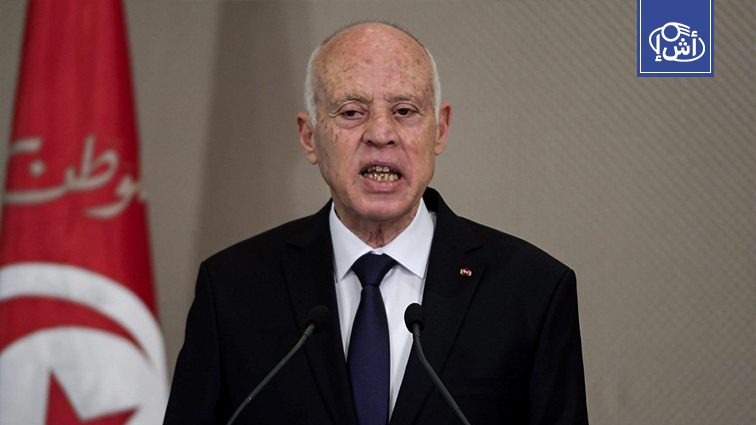Tunisian President Kais Saied yesterday evening, Saturday, made a cabinet reshuffle that observers considered “surprising,” as it included interior and social affairs.
The Tunisian presidency did not disclose the exact reasons for this decision, but it announced the appointment of Khaled Al-Nouri as Minister of Interior, succeeding Kamal Al-Feki, and Kamal Al-Madouri, a technocrat, as Minister of Social Affairs, replacing Malek Al-Zahi.
The position of State Secretary for National Security was also created in the Ministry of Interior, and Sufyan bin Al-Sadiq was appointed to this position.
These changes come in the wake of a wave of arrests that included several human rights activists, lawyers, and journalists during the past two weeks, which raised concern at the international and local levels about the future of freedoms in Tunisia.
Earlier, the European Union, the United States, and France expressed their deep concern about these developments, which required a sharp response from Saeed, who denounced what he described as “foreign interference.”
Meanwhile, hundreds of young people went out in the capital, Tunis, to demonstrate against what they see as a deterioration in the state of democracy and human rights in the country, demanding justice, freedom and dignity, slogans that were raised during the 2011 revolution.
These events come before the presidential elections scheduled for the end of the year, where executive powers have been concentrated in Saied’s hands since the coup against the previous regime in the summer of 2021 and the constitutional amendments that strengthened the president’s influence.
Since the beginning of the year, Tunisia has witnessed a series of events related to public freedoms that began in January. Cases of arrests of activists and journalists were recorded on charges related to conspiring against state security. In mid-February, the Tunisian authorities closed the main headquarters of the “Ennahda Movement” party and the “Tounes Irada Movement” party, and prevented entry. To its headquarters throughout the country.
March of the same year witnessed arrests that dismantled the “Ennahdha Movement” without officially banning it, and on May 15, a court in Tunis sentenced Rashid Ghannouchi to one year in prison and a fine on charges related to terrorism.
In April, the Tunisian authorities closed the main headquarters of the “Tunisia Irada Movement” party and prevented entry to the headquarters of the “Ennahdha Movement” throughout the country.
Morocco is the second largest importer of Russian wheat after Egypt
